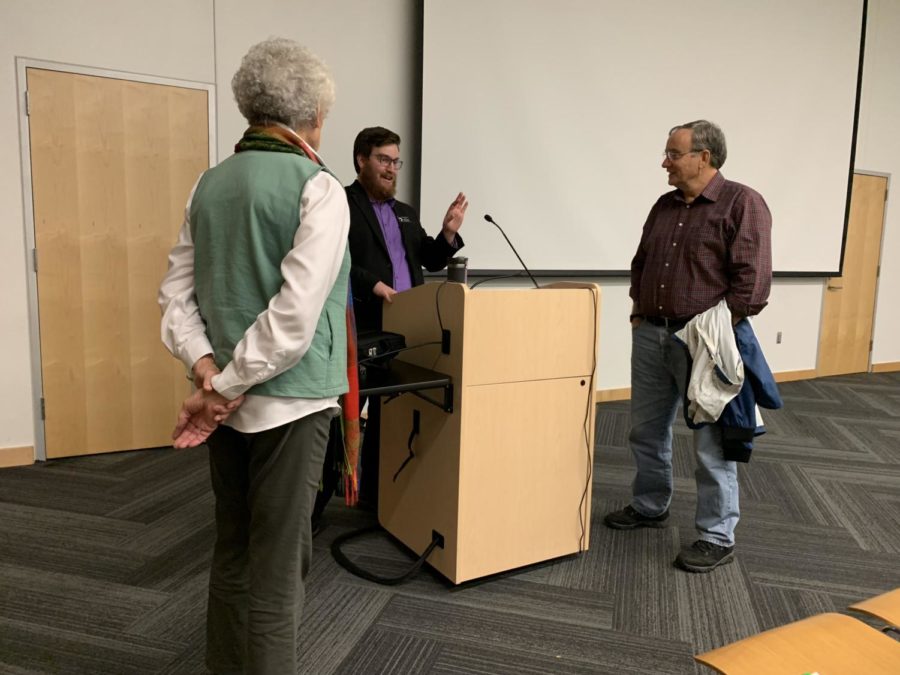Changing the rules of the game: Sean Donaldson on discrimination in sports
By Nick Flores, [email protected]
Sean Donaldson, middle, answers questions from locals following his presentation.
October 9, 2018
On Tuesday, Ames Public Library welcomed Sean Donaldson of the African American Museum of Iowa to speak upon the triumphs of various black athletes that are held dearly by Iowans. These athletes included the likes of Edward Butler, Thomas Hill and Iowa State’s own, Jack Trice.
Throughout Donaldson’s presentation he emphasized the importance of these athletes’ integrity and achievements during times of widespread segregation.
“An athlete’s ability to push on is crucial,” Donaldson said. “And their achievements and success is a testimony to their own willpower.”
Each athlete Donaldson spoke about had a unique story about different hardships they had faced in their athletic careers and Donaldson wanted to make clear that despite however many setbacks these athletes had, they persevered throughout their battles of discrimination.
Donaldson said these stories that can date back to the late 1800’s still serve a purpose and hold importance to locals today.
“I think it’s important to remember that some of the history we think about with the African American community, we think about it as being far in the past or restricted to the south,” Donaldson said. “But a lot of the same issues that were faced there were faced here in a different way.”
The story of Jack Trice serves as an example for Donaldson’s point. The discrimination that was associated with the South was apparent here in the midwest. In a football game where Iowa State faced off against the University of Minnesota, Trice sustained a collarbone injury but opted to continue on with the game. Soon after attempting a tackle on a Minnesota ball carrier, Trice was trampled by multiple players. Although the doctors cleared him for Iowa State’s next game, he soon died of internal bleeding.
In working for the African American Museum of Iowa and creating these presentations, Donaldson believed he served and informed his community in a positive way.
“I’ve always been inspired by underdog histories and by being able to share these things I get to remind myself what it means to really stand up for what you believe in,” Donaldson said.
Donaldson concluded his presentation with a powerful quote from Jackie Robinson which reads, “I’m not concerned with your liking or disliking of me … all I ask is that you respect me as a human being.”
















